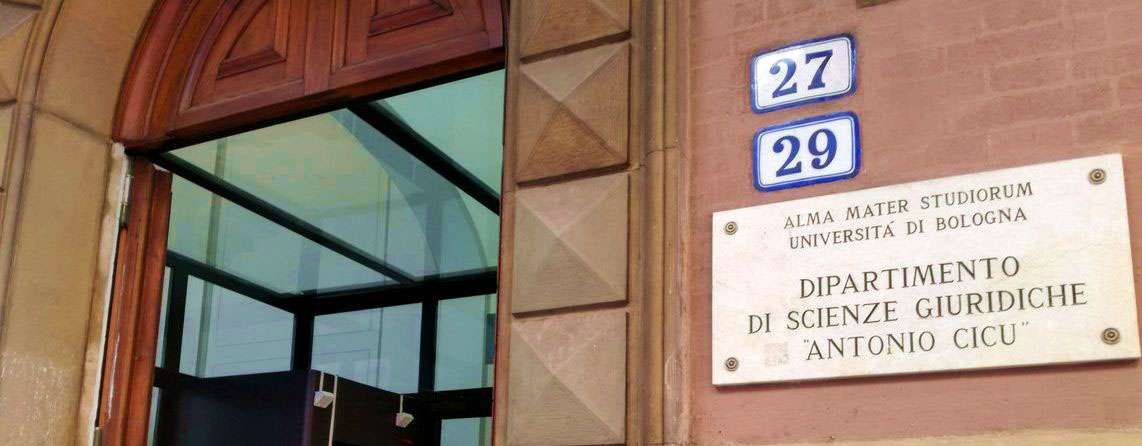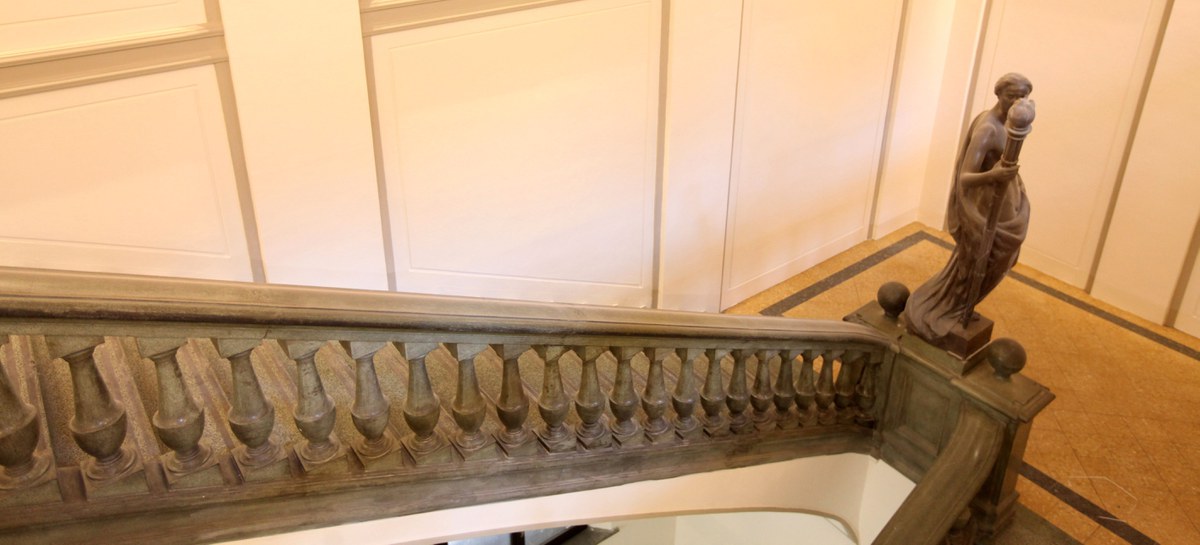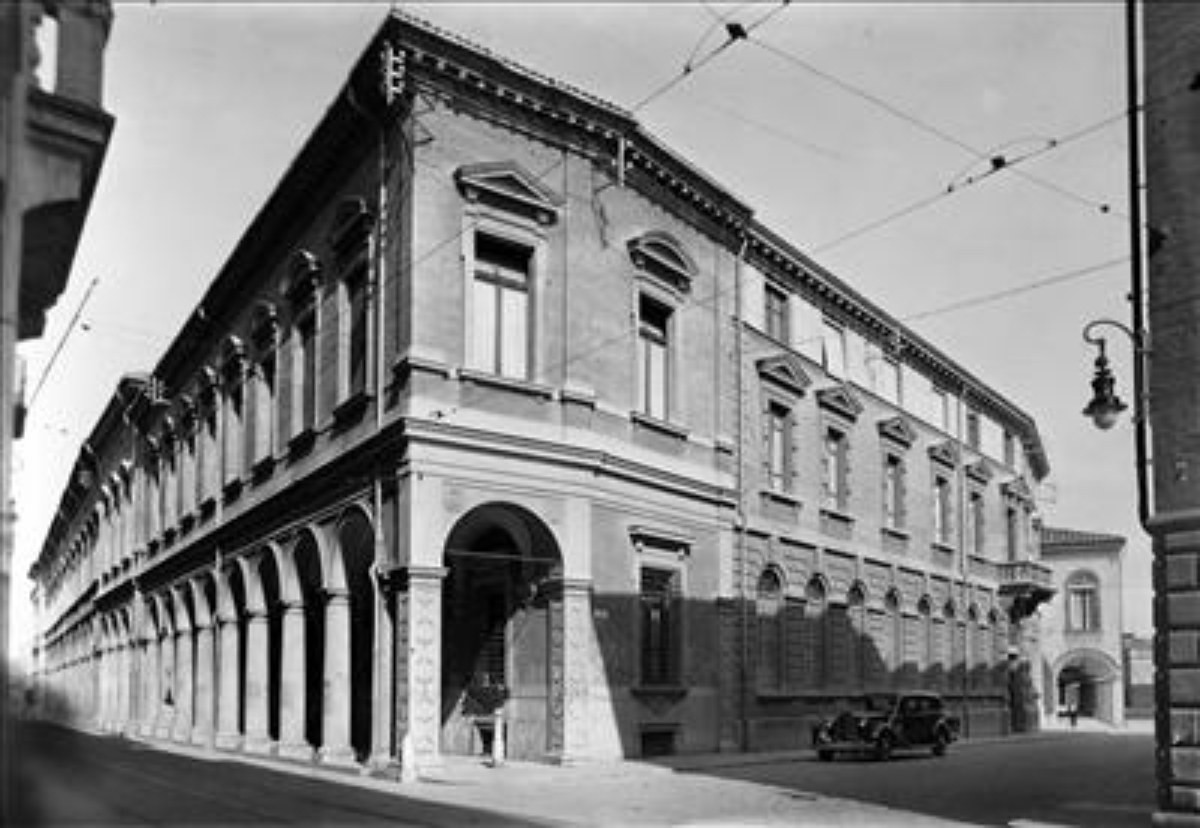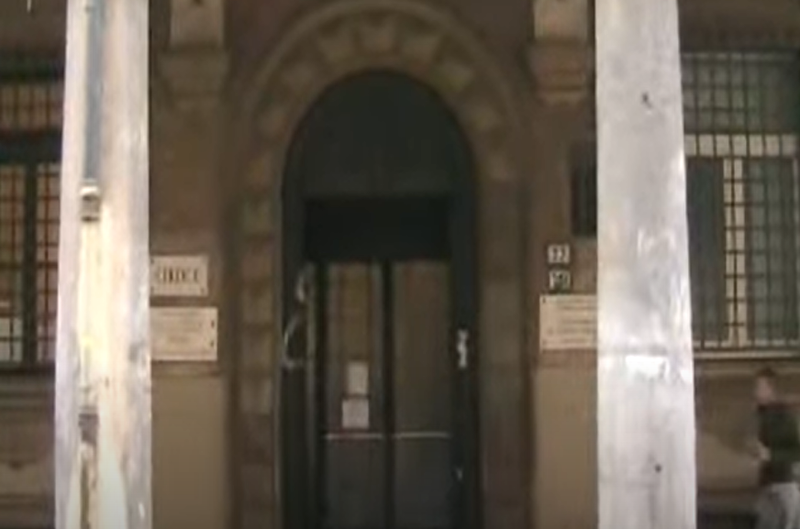Presentation
The Department of Legal Studies (DSG), named Legal Institute until November 2000, promotes and coordinates teaching and research activities in the scientific and disciplinary fields of law, and promote a cooperation among its members.

Research policy and strategies
The mission of the Department of Legal Sciences (DSG) is to design and develop pure and applied research in the legal sciences fields, exploring its fundamental, international, supranational and national principles, history, technical modes of expression, traditions of theoretical, philosophical and critical thought, and practice, with a technical-legal, multidisciplinary and interdisciplinary approach.
The DSG's primary strategic objectives, in line with the objectives of the Strategic Plan and with the University's QA Policies and anti-corruption legislation, are:
- advances in research in legal studies, developing sector and multi-disciplinary research focused on the doctrinal, technical, historical and theoretical aspects of law and its relations with other social science and scientific-technological disciplines, in line with the ERC lines of development and the UN Sustainable Development Goals (in particular Reduced Inequalities and Peace, Justice and Strong Institutions);
- dissemination of research results among the national and international scientific community;
- the promotion and impact of legal knowledge in business and civil society;
- the activation of a system of research self-assessment within the DSG consistent with the requirements of ANVUR.
More in detail, the policies of the DSG are meant to:
- explore research directions that contribute to effective innovation and development policies;
- create research and planning opportunities by promoting networking activities with academic (also within other University departments), industrial and institutional partners nationally and, above all, at a European and international level;
- invest in young researchers, supporting their mobility to create opportunities for collaboration with other research institutions;
- promote research through policies that attract high-quality doctoral students;
- stimulate innovation through partnerships with external funding and supporting bodies.
The research processes will be implemented through
- publications in volumes, journals and editions of texts (in paper and/or electronic versions);
- participation in, and organization of, conferences, seminars, cultural events, and workshops, in collaboration with the University of Bologna and other Italian and international public and private institutions;
- transfer of research results to the world of business and innovation and the legal professions;
- collaborations with public and private bodies for joint initiatives in the field of competitive research.
The framework described above is strengthened, in terms of strategies, resources and implementation methods, by the Departments of Excellence Project, which is engaging the DSG in a series of actions aimed in particular at strengthening research internationalization and interdisciplinarity.

Documentary video about the "Antonio Cicu" Department of Legal Studies
Established in 1911 as the Law Seminar Institute by professor Francesco Brandileone. Over the years various changes took place to the structure of the department and function. It took the name of Antonio Cicu, who was director in 1927, only in 2000. The main library is unusually a bright-white colour, nevertheless, designed for serious study.
BRANCHES AND SPACES
History of the Department
From a Legal Seminar founded in 1911 to the current Department of Legal Studies (DSG).
The Legal Institute
In the aftermath of the Second World War, the Institute was destined to change its name once again: when planning to create the Faculty of Political Science, the adjective ‘political’, flanked by ‘legal’, was abolished by the Faculty Board on 31 March 1949.
The inadequacy of the location of the Legal Institute came up again in the following years. The Faculty, aware of the temporary nature of this solution, decided the time had come to provide a definitive home to its institute – one which was among the first in Italy due to its constantly and rapidly growing endowment and number of visitors, which was also increasing. The extension work led the physical structure of the Legal Institute to border the Institute of Forensic Application. For this reason, the faculty unanimously accepted Professor Cicu's proposal to transfer the latter, with all its furnishings, to the ground floor, while moving the Institute of which he was Director to the rooms where the Forensic Institute was once located.
On 22 May 1954, the new premises of the Legal Institute were officially inaugurated with a large hall used as a study room. Alongside works of civil and commercial law, this hall contained the year’s works of Italian Courts and Italian Law, as well as codices and other works in consultation. The other rooms on the first floor were used to store magazines and texts of positive law, while the upper floor was dedicated to texts on historical subjects: Roman law, the history of Italian law, common law and canon law. In all, the new library was divided into a large reading room and 25 rooms for teachers and assistants, which meant that the library’s materials were not always fully available, being often dictated by contingent needs of space.
Just two years later, the management of the Institute expressed once again its concern about the small size of the rooms, and the Higher Academic Authorities agreed to assign all the adjacent rooms occupied by the Faculty of Letters and Philosophy to the Institute – but only once they were no longer needed by the former. The years passed and the problem remained unresolved. So, in 1960, the Faculty asked, for the umpteenth time, that it be assigned the entire building at 27/29 Via Zamboni, repeating the request a couple of years later.
The ‘A. Cicu’ Law Institute
To commemorate the death of Professor Antonio Cicu, which occurred on 8 March 1962, the Dean, Professor Enrico Bassanelli, proposed naming the Legal Institute he founded in 1927 and directed for more than thirty years (1927-1962) after the illustrious civilist. The Department’s approval was followed by that of the Minister of Education, Luigi Gui, and the necessary amendment to Article 23 of the University Statute, which specified that ‘a legal institute named after Professor Antonio Cicu has been established within the Law Department’.
The imminent assignment of the entire building in which the Institute had and has its headquarters made it possible to temporarily relieve the unfavourable conditions in which most of the teaching and administrative staff of the Department worked, with the latter requesting that it immediately be assigned the premises repeatedly requested as soon as they were available. Finally, on 4 August 1967, the administrative offices of the University gave the Director of the Legal Institute, Professor Enrico Bassanelli, the keys to the premises previously occupied by the Institute of Classical Philology.
On 21 March 1968, the Department, called upon to express its opinion on the three-year plan (1969-1971) of university building, renewed its request to deal with the problems caused by the serious inadequacy of the entire premises used for teaching and research and, at the same time, stressed the need for a mandatory renovation of the building in which the library was located.
On 10 June 1976, the Department expressed its opinion on the ‘Project for a General Part of the University Statute’, drawn up by a special Commission, which provided for broad regulatory powers for the various Departments and Institutes, allowing them to meet their teaching and research needs in a timely manner, without the need for external approval (Articles 13-17). The project was divided into three parts dedicated respectively to the structures of the University, its institutes and its regulatory powers. The part dedicated to the institutes was the largest (articles 6-12), which is not surprising: the Commission had tried to give them a uniform set of regulations, remedying an inexplicable regulatory vacuum. The institutes were mentioned from art. 1, where they were defined as ‘bodies with the fundamental task of coordinating research and teaching, and providing an interdisciplinary connection, in full compliance with constitutional principles’. In the dedicated section, the Legal Institute was then divided into three bodies: an Assembly, a Board of Directors and a Directorship.
At the end of a lively discussion, the Faculty decided on the implementation of statutory regulations that provided for a dual use of the Legal Institute, intended both as a library and as an institute for scientific research and teaching, thereby reserving some of the rooms for the activities of the various professorships.
In the spring of the following year, the possibility of extending the Legal Institute in the premises where the Forensic Application Institute was located, on the ground floor of 27 Via Zamboni, was proposed.
In the early 1980s, there was a revision of the Statute, now outdated. Alongside the repeal of some articles, art. 23 was modified, specifying that ‘the Legal Institute was responsible for the entire set of books, a necessary resource for teachers, researchers and students of the Department’. The same rule also regulated the appointment of the director, still to be chosen by the Rector, but only after the appointment of the Department Council in its enlarged composition. The term of office was three years and renewable.
Despite occupying the entire building at 27/29 Via Zamboni, in the 1980s the Legal Institute still faced a lack of adequate space, as a result of the growth of the Faculty and of the members. Therefore, since the area between Via Belmeloro and Viale Filoppanti, occupied by the buildings of the Faculty of Veterinary Medicine, was to be freed in a fairly short time, the Department Council unanimously requested it. The Council obtained the authorisation to open a new branch of the Legal Institute, which was inaugurated in March 1995.
At the same time, a restructuring of the Institute's premises was completed, culminating in the opening of two new study rooms on the ground floor in 1992, one named after Professor Carlo Arturo Jemolo and the other after Professor Giuseppe Caputo, who deserves credit for having pursued this objective.
The A. Cicu Department of Legal Studies
On 22 February 2000, the Institute Board approved the Rules of Operation of the Structure, which also involved the implicit change of the name from ‘Istituto Giuridico A. Cicu’ to ‘Dipartimento di Scienze Giuridiche A. Cicu’. The aforementioned regulation was issued by Rector’s Decree n. 78 of 10 August 2000, and established that, as of 1 November 2000, maintaining that the Director, Deputy Director and Institute Board would remain in force on a transitional basis while also extending in their functions.
Work is currently underway to enlarge the headquarters of the Department, as desired by the late Director, Professor Giorgio Ghezzi, which will lead to the incorporation of the areas of the former library tower of the University Library.
The Department of Legal Studies (DSG)
On 15 November 2012, as part of a wider reorganisation of Italian universities, the official bulletin of the University of Bologna published the modification of the name of the department to: Department of Legal Studies (DSG), while the library is was named the ‘Antonio Cicu’ Legal Library.
Directors of the Department
- 1911-1927 Professor Francesco BRANDILEONE (Canon Law, Ecclesiastical Law, History of Italian Law)
- 1927-1962 Professor Antonio CICU (Civil Law)
- 1962-1975 Professor Enrico BASSANELLI (Agricultural Law)
- 1975-1976 Professor Franco Nicola Alessandro BRICOLA (Criminal Law)
- 1976-1979 Professor Gaetano CASTELLANO (Commercial Law)
- 1979-1984 Professor Roberto BONINI (Roman Law)
- 1984-1985 Professor Paolo COLLIVA (History of Italian Law)
- 1985-1991 Professor Giuseppe CAPUTO (Canon Law)
- 1991-1994 Professor Vito Maria MANGINI (Commercial Law)
- 1994-2005 Professor Giorgio GHEZZI (Labour Law)
- 2005-2012 Professor Giulio ILLUMINATI (Criminal Proceedings)
- 2012-2018 Professor Giovanni LUCHETTI (Roman Law)
- 2018-2024 Professor Michele CAIANIELLO (Criminal Procedural Law)
- 2024- Professor Federico CASOLARI (European Union Law)

